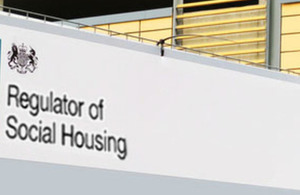- Over 140,000 volunteers were tested in England between 11 to 30 March 2021 as part of one of the most significant COVID-19 studies in the world
- Findings from Imperial College London and Ipsos MORI show infections fell by approximately 60% from the last REACT study in February, with only 1 in 500 people infected
- Data suggests infections have led to fewer deaths since December, which coincides with the vaccination rollout and ‘Stay at Home’ rules during this period
- Prevalence of infections has now plateaued, showing it is critical everyone continues to follow the guidance and rules to help control the epidemic
Over 140,000 volunteers were tested with PCR tests in England between 11 to 30 March to examine the levels of infection in the general population. The latest data shows infections in England have fallen by around 60% since the last REACT report (covering the period between 4 to 23 February), published on 4 March. When compared to the findings from February, the sharpest drops in prevalence were seen in London and the South East.
The study observed that the speed of this decline started to plateau from mid-March, reinforcing the need for everyone to continue to follow the rules as we progress down the roadmap, remembering to follow the hands, face, space and fresh air guidance.
The study also found that the correlation between prevalence of infections and deaths is now diverging, suggesting that infections may have led to fewer deaths since the start of widespread vaccination through the Government’s vaccination programme.
The main findings from the tenth round of the REACT study show:
- during the latest round in March, the study estimates an R number of 1 in England
- between February and March, national prevalence has dropped by around 60% from 0.49% in February to 0.20% in March
- there were substantial falls in regional prevalence from February to March: in South East from 0.36% in February to 0.07% in March; London from 0.60% to 0.16%; East of England from 0.47% to 0.15%; East Midlands from 0.59% to 0.19%; and North West from 0.69% to 0.31%
- areas of higher prevalence remain in parts of the North West, and Yorkshire and The Humber
- the highest prevalence in March was in those aged 5 to 12 years at 0.41%, compared with the lowest in those aged 65 to 74 and 75 and over at 0.09%
- infections may have produced fewer hospitalisations and deaths since the start of widespread vaccination
The vaccine programme continues to expand to protect as many people as possible, and over 37 million doses have been administered across the country so far. The vaccination programme is already having a significant impact on hospitalisations and deaths, with prevalence now lowest in those aged 75 and over.
Professor Paul Elliott, director of the REACT programme from Imperial’s School of Public Health, said:
We have seen a gratifying fall in infections since our last survey in February, with infections dropping by around 60% overall. This is hugely encouraging and shows we’re headed in the right direction.
However, in our most recent data there has been a flattening off in the infection rate with an R number now around one. This shows that we need to continue to approach the situation with caution and keep sticking to the rules.
Kelly Beaver, Managing Director, Public Affairs at Ipsos MORI said:
Over 1.5 million people in England have now participated in the REACT study and the data from this round is very encouraging, with a 60% reduction in prevalence since the last round in March.
But as we progress through the roadmap out of lockdown, we must remain vigilant. The R number being at 1 means we need to remain cautious in our approach over the coming weeks and months.
Infection rates are expected to rise as we cautiously ease restrictions, and we have been clear that moving too fast, too soon through the roadmap risks putting unsustainable pressure on the NHS.
The roadmap is dependent on four tests: the vaccination programme continuing successfully, evidence that vaccines are effective in reducing hospitalisations and deaths, that infection rates do not risk a surge in hospitalisations and pressure on the NHS, and that new variants of concern do not significantly impact on risk assessments. As we continue with our successful vaccination programme, testing, and the cautious easing of restrictions led by data and not dates, we expect there to be less pressure on the NHS, fewer deaths and hospitalisations.
As part of the first stage of the roadmap, schools reopened on 8 March which is crucial to children’s education and wellbeing. Earlier this week, the government announced the second stage of the roadmap will continue as planned on 12 April with outdoor hospitality, non-essential retail and hairdressers reopening.
The government also announced that everyone in England will now have access to two rapid lateral flow tests a week, as part of its universal testing rollout. This will help to catch asymptomatic cases and stop people from unknowingly passing on the virus, potentially saving lives as restrictions start to be eased.
This report is the latest from the REACT study which was commissioned by the Department of Health and Social Care and carried out by a world-class team of scientists, clinicians and researchers at Imperial College London, Imperial College Healthcare NHS Trust and Ipsos MORI.
Robust population surveillance studies are essential to understanding the rate of COVID-19 infection, how the virus is spreading across the country and the impact of measures taken to contain the virus to inform current and future actions.
The pre-print report is available to download using the password REACT10.
View more information on the Real-time Assessment of Community Transmission (REACT) programme of work.
This study falls under Pillar 4 of the COVID-19 National Testing Programme, which focuses on mass surveillance in the general population.
More detail on rapid testing.
